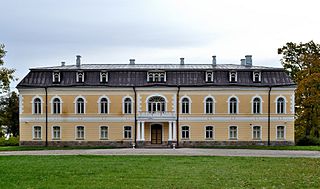Related Research Articles
As a constitutional convention, members of Parliament (MPs) sitting in the House of Commons of the United Kingdom are not formally permitted to resign their seats. To circumvent this prohibition, MPs who wish to step down are instead appointed to an "office of profit under the Crown"; by law, such an appointment disqualifies them from sitting in the House of Commons. For this purpose, a legal fiction has been maintained whereby two unpaid sinecures are considered to be offices of profit: Steward and Bailiff of the Chiltern Hundreds, and Steward and Bailiff of the Manor of Northstead.

Northstead is an area on the North Bay of Scarborough in North Yorkshire, England. The area near Newlands and Barrowcliff includes Peasholm Park and Scarborough Open Air Theatre.
The Chiltern Hundreds is an ancient administrative area in Buckinghamshire, England, composed of three "hundreds" and lying partially within the Chiltern Hills. "Taking the Chiltern Hundreds" refers to one of the legal fictions used to effect resignation from the British House of Commons. Since Members of Parliament are not permitted to resign, they are instead appointed to an "office of profit under the Crown", which requires MPs to vacate their seats. The ancient office of Crown Steward and Bailiff of the Chiltern Hundreds, having been reduced to a mere sinecure by the 17th century, was first used by John Pitt in 1751 to vacate his seat in the House of Commons. Other titles were also later used for the same purpose, but only those of the Chiltern Hundreds and the Crown Steward and Bailiff of the Manor of Northstead are still in use.

Kehtna is a small borough in Rapla County, in central Estonia, located about 9 km (6 mi) southeast of the town of Rapla. Other nearby settlements include Keava, Kaerepere and Lelle. Kehtna is the administrative centre of Kehtna Parish. It has a population of 1,674.

In Anglo-Saxon England, a reeve was an administrative official serving the king or a lesser lord in a variety of roles. After the Norman Conquest, it was an office held by a man of lower rank, appointed as manager of a manor and overseer of the peasants. In this later role, historian H. R. Loyn observes, "he is the earliest English specialist in estate management."

Slaidburn is a village and civil parish within the Ribble Valley district of Lancashire, England. The parish covers just over 5,000 acres of the Forest of Bowland.
Kurtna is a village in Alutaguse Parish, Ida-Viru County in northeastern Estonia.
References
- ↑ Ian Crofton, John Ayto (2005). Brewer's Britain and Ireland. via Credo Reference. ISBN 0-304-35385-X . Retrieved 13 September 2012.
{{cite book}}:|work=ignored (help) - ↑ "No. 15171". The London Gazette . 20 August 1799. p. 838.